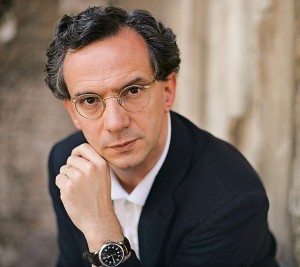
The Metropolitan Opera recently named Italian conductor Fabio Luisi its principal guest conductor—only the second time a conductor has held the title. Although the three year contract is unrelated to James Levine’s recent absences due to illness, Luisi will act as the go-to conductor for any future performances Levine may miss.
Maestro Luisi has periodically conducted at the Met since 2005, and was already scheduled to lead several performances next season. He is currently the chief conductor of the Vienna Symphony Orchestra, and is scheduled to become the music director of the Zurich Opera in 2012. His post as principal guest conductor will both allow him to become more familiar with the company and its orchestra, and act as reassurance for the staff in the event of any further absences. Peter Gelb, The Met’s general manager, acknowledges that while Luisi has the expertise to succeed James Levine, that scenario is not yet a consideration. Neither Gelb, or Luisi have any anticipation of Levine stepping down, and assert that the Met can simply enjoy its newest resident Maestro.
via The New York Times.
Author Archive
Met Names Principal Guest Conductor
Lacombe Invigorates NJSO
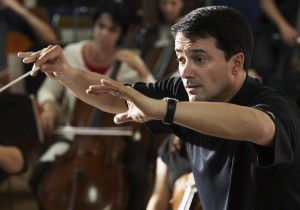
Jacques Lacombe enjoyed a warm public reception after his first weekend of performances with the New Jersey Symphony Orchestra. In fact, the new music director “could hardly have made a stronger impression” according to The Star Ledger.
Lacombe succeeded Neeme Järvi as the NJSO’s conductor, and was considered the perfect candidate to revitalize and polish the orchestra. It seems he did just that. Ronni Reich wrote for the Ledger that the orchestra’s new sound was “fittingly earthy and surprisingly refined,” noting that the ensemble’s tone was “full of depth without ever feeling heavy, thick or unwieldy.” View Full Article »
Rachmaninoff Plays Rachmaninoff
Does Not Cause Blindness
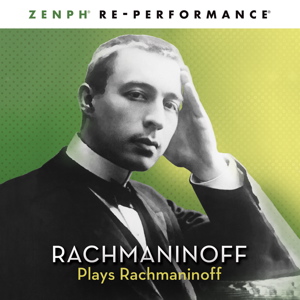
While Rachmaninoff’s legacy lives in the rich, dark melodies he inscribed into a lifetime of compositions, knowledge of his prowess as a performer still remains limited to historical accounts and crackly recordings. Recording technology was just beginning to bud during his career, so the sound quality of even remastered recordings is passable at best. But because there is an inexorable authenticity to his performances, and because these remaining vestiges of his pianism prove that Rachmaninoff’s big hands were contrarily delicate, these recordings remain among my favorites despite their dustiness.
Until recently, the closest modern listeners could come to hearing Rachmaninoff perform was by listening to a recording of a piano roll performance. While Rachmaninoff himself was impressed with the accuracy a piano roll contained in reproducing dynamics, rubato, and other musical elements, he only created 35 in his lifetime. It is reported that upon hearing one for the first time, he exclaimed “Gentlemen — I, Sergei Rachmaninoff, have just heard myself play!”
But with the advent of Zenph Studios’ “re-performance” technology, computer software can analyze old recordings and translate them into “high definition MIDI” data. View Full Article »
Gergiev Accepts Role as Dean
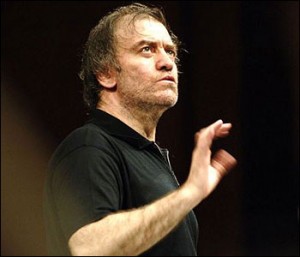
Despite his already taxing schedule, conductor Valery Gergiev has accepted the position of Dean of arts faculty at St. Petersburg State University. In addition to his commitments at the Mariinsky theater as well as his post at the London Symphony Orchestra, Gergiev will assume leadership of the arts faculty that was formed last month when the school’s academic council voted to separate the arts and philology faculties. View Full Article »
Levine Returns to BSO After Spinal Surgery
Conducting Still Pain in the Neck
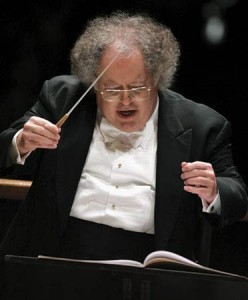
James Levine led the Boston Symphony Orchestra last week for the first time since his back surgery in the Fall. While Levine has been in New York for assorted performances at Carnegie Hall and the Metropolitan Opera, his leadership at the BSO was absent for most of the season’s Fall performances. He presented his returning program, featuring works by Berlioz, Ravel, and Carter, in both Boston and New York. Perhaps fortuitously, the night before the BSO’s Carnegie Hall performance, Levine and the BSO won a Grammy for their recording of Ravel’s “Daphnis et Chloé.” For a complete review of the performance and a clip of the Grammy winning recording, see the NYT article here.
Montclair State University Music School Enters New Era

Montclair State University’s new $35 million dollar music school is presenting a chamber music concert this weekend as part of its inaugural year. The Cali School of Music, named after $5 million donor John J. Cali, opened this Fall and brings a host of world renowned faculty to the college.
As the music program continues to increase in size, $4 million of Cali’s $5 million dollar donation will go to paying full-scholarships for deserving students. To commemorate the new school, MSU is presenting two chamber music events this weekend at the newly constructed Jed Leshowitz Recital Hall. The concerts will be at 8:00pm on Saturday, and 3:00pm on Sunday.
For more information check the article link here or visit montclair.edu/music.
Mark O’Connor Crosses Over
Again
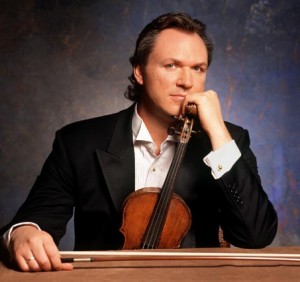
Violinist Mark O’Connor will team up with bassist John Patitucci and guitarist Julian Lage at New York City’s Blue Note next weekend, bringing his classical, folk, and flamenco backgrounds to a new, jazzier venture. The trio will debut at the Blue Note on January 7, 8, and 9, with each member contributing his individual background, style, and compositional elements.
Widely known for his folk performances and compositions, O’Connor is a classically trained musician whose influences have led him through many genres, including jazz. More recently, he has generated buzz for his new violin method, The Mark O’Connor Violin Method. The method bears ideological similarities to the time-tested Suzuki Method, but guides its students through a repertoire of American folk music.
As O’Connor begins his foray with the trio, listeners can probably count on him crossing into the jazz realm regularly, even as he continues to release more installments of his folk-based method book.
Baldwin Dedicated to Classical Music
Big Mahler Fan
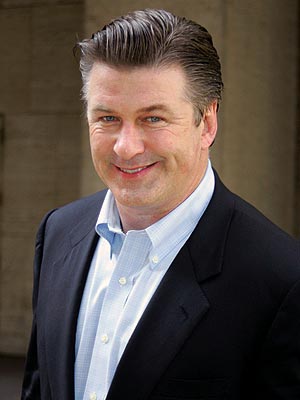
Alec Baldwin loves classical music. According to the NY Times, Baldwin is not only invested in his role as announcer for the New York Philharmonic’s weekly radio broadcasts, but he is also a die-hard classical music fan. Daniel Wakin writes that Baldwin was offered the position after the Phil took notice of his patronage. The NY Phil regularly keeps tabs on its celebrity concert-goers, offering them tickets in exchange for publicity.
The Phil first booked Baldwin as narrator for an “Inside the Music” series in 2008—a program where a work is first explained and then performed. Then, after Baldwin joked that he’d like to quit acting and become a classical music radio presenter, the Phil pounced on his apparent interest and made an offer.
Now, as Baldwin records radio announcements between acting commitments like this winter’s “It’s Complicated” and NBC’s “30 Rock,” he sets his schedule around musical events he refuses to miss. Last May, he contracted time off to see Daniel Barenboim conduct Mahler’s ninth symphony. Baldwin’s interest in classical music began on a soap opera set when he was 24, when a staging director chided him for not recognizing Berlioz’s “March to the Scaffold” from Symphony Fantastique. Now, Baldwin listens to classical everywhere from his home to his car, and has a constantly expanding library of works.
View Full Article »





